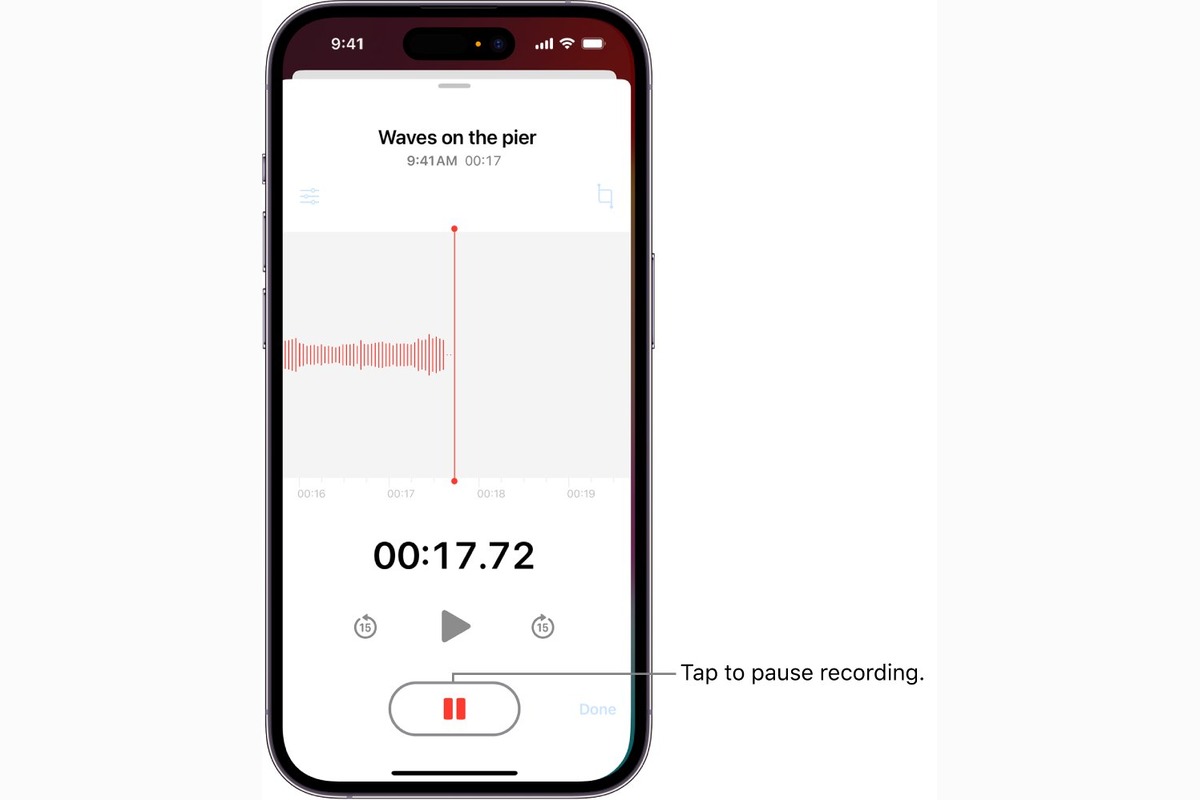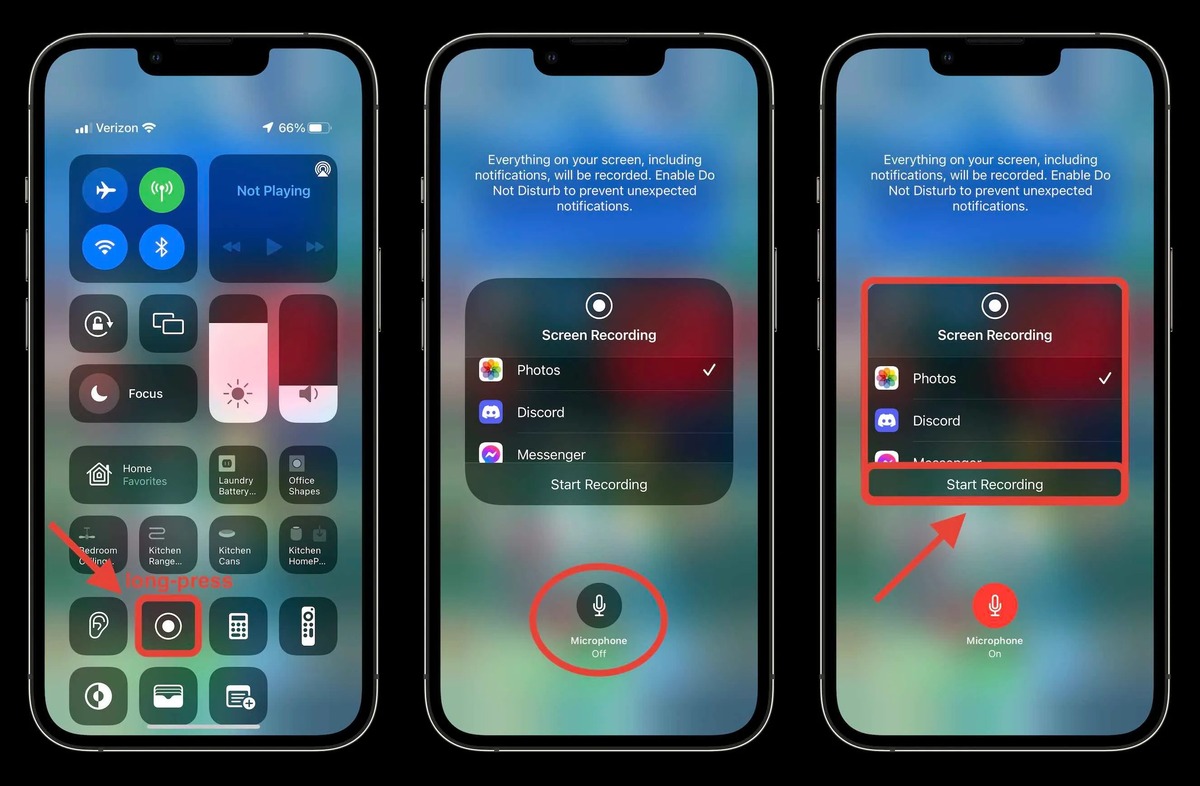Home>Law and Legal Advice>The Surprising Consequences Of Having A Misdemeanor On Your Record


Law and Legal Advice
The Surprising Consequences Of Having A Misdemeanor On Your Record
Published: February 6, 2024
Learn about the unexpected impact of a misdemeanor on your record and get valuable legal advice. Understand the consequences with expert insights.
(Many of the links in this article redirect to a specific reviewed product. Your purchase of these products through affiliate links helps to generate commission for Noodls.com, at no extra cost. Learn more)
Table of Contents
Introduction
Having a misdemeanor on your record can have surprising and far-reaching consequences that extend beyond the initial legal ramifications. Many individuals underestimate the impact of a misdemeanor conviction, assuming that it will not significantly affect their lives. However, the reality is quite different. The repercussions of a misdemeanor can permeate various aspects of one's personal and professional life, leading to unforeseen challenges and limitations.
Understanding the full scope of these consequences is crucial for anyone facing or dealing with a misdemeanor conviction. From employment and housing to financial and educational opportunities, the implications of a misdemeanor can be profound. Furthermore, the personal toll it takes on individuals cannot be overlooked.
In this article, we will delve into the multifaceted effects of having a misdemeanor on your record. By shedding light on the unexpected repercussions, we aim to provide a comprehensive understanding of the real-life implications that individuals may encounter. It is essential to recognize that a misdemeanor conviction is not just a legal matter; it has the potential to shape various aspects of a person's life in ways that are often overlooked.
Understanding Misdemeanors
Misdemeanors are criminal offenses that are considered less serious than felonies but more severe than infractions. They encompass a wide range of non-violent and less severe crimes, such as petty theft, disorderly conduct, simple assault, trespassing, and certain types of drug possession. While the specific classification and penalties associated with misdemeanors vary by jurisdiction, they typically result in less than a year of incarceration in a local jail, as opposed to a state or federal prison sentence. Additionally, misdemeanor convictions often lead to probation, community service, fines, and mandatory counseling or educational programs.
It's important to note that the repercussions of a misdemeanor conviction extend beyond the immediate legal penalties. Individuals with misdemeanor records may face challenges in various aspects of their lives, including employment, housing, finances, education, and personal relationships. The impact of a misdemeanor can be particularly significant in professions that require background checks or involve working with vulnerable populations, such as healthcare, education, and childcare.
Moreover, misdemeanor convictions can have lasting effects on an individual's reputation and self-esteem. The stigma associated with a criminal record, even for a misdemeanor, can lead to feelings of shame, embarrassment, and social isolation. This can exacerbate the difficulties individuals face in rebuilding their lives and moving forward from their past mistakes.
Understanding the nature and implications of misdemeanors is essential for individuals navigating the legal system, as well as for employers, landlords, and educators who encounter individuals with misdemeanor records. By recognizing the complexities and consequences of misdemeanor convictions, society can work towards implementing fair and effective strategies for supporting individuals in their efforts to rehabilitate and reintegrate into their communities.
Employment Consequences
Misdemeanor convictions can have profound and lasting effects on an individual's employment opportunities. Many employers conduct background checks as part of their hiring process, especially for positions that involve handling finances, working with vulnerable populations, or requiring a high level of trust and responsibility. When a misdemeanor appears on a background check, it can significantly impact an individual's chances of securing employment.
Employers may view a misdemeanor as a red flag, raising concerns about an individual's trustworthiness, judgment, and ability to adhere to workplace rules and regulations. This can result in the rejection of job applications or the rescinding of job offers, even if the misdemeanor is unrelated to the responsibilities of the position. Furthermore, certain industries, such as healthcare, education, finance, and government, have stringent regulations regarding the hiring of individuals with criminal records, including misdemeanors. As a result, individuals with misdemeanor convictions may encounter substantial barriers to entering or advancing in these fields.
Additionally, some states have laws that allow employers to inquire about an individual's criminal history during the application process. While "ban the box" initiatives have been implemented in certain jurisdictions to restrict employers from asking about criminal history at the initial stages of the hiring process, the existence of a misdemeanor on a candidate's record can still influence hiring decisions during later stages of the recruitment process.
Even if an individual with a misdemeanor conviction is able to secure employment, they may face challenges related to career advancement and professional development. Some employers conduct periodic background checks on current employees, and a misdemeanor that surfaces during such a check can jeopardize one's current position or prospects for promotion.
Furthermore, individuals with misdemeanor records may be ineligible for certain professional licenses, certifications, or government contracts, limiting their career options and earning potential. These restrictions can be particularly burdensome for individuals seeking to pursue careers in fields that require specialized credentials or qualifications.
In essence, the employment consequences of a misdemeanor conviction extend far beyond initial legal penalties, affecting an individual's livelihood, financial stability, and professional aspirations. The barriers to employment resulting from a misdemeanor conviction can perpetuate cycles of economic hardship and hinder individuals from fully reintegrating into the workforce, underscoring the need for comprehensive support and reentry programs for individuals with criminal records.
Housing Consequences
Misdemeanor convictions can have significant implications for individuals seeking housing, creating obstacles that can make finding a place to live challenging. Many landlords and property management companies conduct background checks on prospective tenants, and a misdemeanor on one's record can lead to automatic disqualification or reluctance to rent to the individual. This is particularly true in competitive rental markets where landlords have the luxury of being selective in their tenant screening process.
The presence of a misdemeanor on a background check can trigger concerns among landlords regarding the prospective tenant's trustworthiness, potential for disruptive behavior, and ability to comply with lease agreements and property rules. As a result, individuals with misdemeanor records may encounter rejections from multiple housing applications, leaving them in precarious situations where finding stable and safe housing becomes a formidable task.
Moreover, individuals with misdemeanor convictions may face limited housing options, as some landlords and property management companies have blanket policies against renting to individuals with criminal records, regardless of the nature or severity of the offense. This creates a systemic barrier that disproportionately affects individuals with misdemeanor records, potentially leading to housing instability, homelessness, or reliance on substandard living arrangements.
Furthermore, individuals with misdemeanor convictions may encounter challenges in accessing government-subsidized housing programs, as certain programs have strict eligibility criteria that disqualify individuals with criminal records. This exclusion from subsidized housing options can exacerbate housing insecurity and financial strain, particularly for individuals with limited financial resources.
The impact of housing instability resulting from misdemeanor convictions extends beyond the immediate housing search process. It can contribute to social isolation, disrupt family dynamics, and impede individuals' efforts to rebuild their lives and reintegrate into their communities. Additionally, the stress and uncertainty associated with housing instability can have detrimental effects on individuals' mental and emotional well-being, further complicating their efforts to move forward from past mistakes.
In essence, the housing consequences of misdemeanor convictions underscore the interconnected nature of the collateral consequences of criminal records. Addressing the barriers to housing faced by individuals with misdemeanor convictions requires a multifaceted approach that involves policy reforms, advocacy for fair housing practices, and the development of supportive housing initiatives tailored to the needs of individuals with criminal records. By recognizing and addressing these housing challenges, communities can work towards fostering inclusive and equitable housing opportunities for all individuals, regardless of their past legal history.
Financial Consequences
Misdemeanor convictions can have enduring financial repercussions that extend far beyond the immediate legal penalties. Individuals with misdemeanor records may encounter various challenges related to their financial stability, access to credit, and overall economic well-being.
One significant financial consequence of a misdemeanor conviction is the potential impact on employment opportunities, as discussed earlier. Difficulty in securing stable employment can lead to income instability and limited earning potential. This, in turn, can impede individuals' ability to meet their financial obligations, including rent or mortgage payments, utility bills, and other essential expenses. The resulting financial strain can contribute to housing instability, exacerbating the challenges individuals face in finding and maintaining suitable housing.
Furthermore, individuals with misdemeanor records may experience challenges in accessing financial services, such as loans, credit cards, and bank accounts. Financial institutions often consider an individual's criminal record as part of their risk assessment when evaluating applications for credit and banking services. As a result, individuals with misdemeanor convictions may encounter rejections or restrictions when attempting to secure loans or open bank accounts. This can hinder their ability to establish or rebuild their financial stability, making it difficult to access essential financial resources for everyday needs or long-term financial planning.
Moreover, the financial consequences of misdemeanor convictions can extend to the realm of personal finances and budgeting. Individuals with misdemeanor records may face higher insurance premiums, limited access to certain types of insurance, and challenges in obtaining favorable rates for financial products. Additionally, the costs associated with legal fees, court fines, and restitution payments related to misdemeanor convictions can strain individuals' financial resources, creating additional barriers to achieving economic stability.
The cumulative effect of these financial challenges can perpetuate cycles of economic hardship and hinder individuals from fully reintegrating into society. The barriers to financial stability resulting from misdemeanor convictions highlight the need for comprehensive support systems and resources tailored to the unique financial needs of individuals with criminal records. By addressing these financial consequences and working towards equitable access to financial services and resources, communities can support individuals in their efforts to rebuild their economic well-being and move forward from past legal challenges.
Educational Consequences
Misdemeanor convictions can have significant and long-lasting consequences on an individual's educational pursuits. The impact of a misdemeanor on one's educational opportunities can manifest in various ways, affecting access to academic programs, financial aid, and campus resources.
One notable consequence of a misdemeanor conviction is the potential restriction on educational opportunities. Many educational institutions, particularly colleges and universities, conduct background checks on applicants as part of the admissions process. A misdemeanor on an applicant's record can raise concerns among admissions committees regarding the individual's character, judgment, and suitability for admission. As a result, individuals with misdemeanor convictions may encounter barriers in gaining acceptance to academic programs, limiting their ability to pursue higher education and attain their academic goals.
Furthermore, individuals with misdemeanor records may face challenges in accessing financial aid for education. Federal financial aid eligibility regulations impose restrictions on individuals with drug-related misdemeanor or felony convictions, potentially rendering them ineligible for certain types of financial aid, including grants, loans, and work-study programs. This limitation can hinder individuals' ability to afford the costs of higher education, creating financial barriers that impede their pursuit of academic advancement.
Additionally, the stigma associated with a misdemeanor conviction can impact an individual's experience within educational settings. The disclosure of a misdemeanor record may lead to social stigma, discrimination, or the perception of being a security risk among peers and faculty members. This can create a hostile or unwelcoming environment for individuals with misdemeanor records, affecting their sense of belonging and academic engagement.
Moreover, certain academic and extracurricular opportunities, such as internships, research programs, and leadership roles, may be limited for individuals with misdemeanor convictions. Many of these opportunities require background checks or have specific eligibility criteria that disqualify individuals with criminal records, thereby restricting their access to valuable educational experiences and professional development opportunities.
The educational consequences of misdemeanor convictions highlight the need for supportive and inclusive educational environments that recognize individuals' potential for growth and learning, regardless of their past legal history. By addressing the barriers to educational access and advancement faced by individuals with misdemeanor records, educational institutions can work towards fostering equitable opportunities for academic and personal development, ultimately contributing to the rehabilitation and success of all individuals seeking to further their education.
Personal Consequences
Misdemeanor convictions carry profound personal consequences that extend beyond the legal and practical challenges discussed earlier. The impact of a misdemeanor on an individual's personal life can be multifaceted, affecting their self-esteem, relationships, mental well-being, and overall quality of life.
One of the most significant personal consequences of a misdemeanor conviction is the emotional toll it takes on individuals. The stigma and shame associated with having a criminal record, even for a misdemeanor offense, can lead to feelings of guilt, embarrassment, and self-doubt. Individuals may experience heightened stress, anxiety, and emotional distress as they navigate the challenges of rebuilding their lives and moving forward from their past mistakes. This emotional burden can affect their overall well-being and sense of self-worth, creating barriers to personal growth and fulfillment.
Moreover, misdemeanor convictions can strain personal relationships and social connections. The disclosure of a misdemeanor record to family members, friends, or romantic partners can lead to strained relationships, social stigma, and a sense of alienation. Individuals may face judgment, rejection, or the loss of social support networks, further complicating their efforts to reintegrate into their communities and rebuild their lives. Additionally, the impact of a misdemeanor on an individual's reputation within their social circles can lead to social isolation and a diminished sense of belonging, exacerbating the emotional and psychological challenges they face.
Furthermore, the personal consequences of misdemeanor convictions can manifest in challenges related to personal and professional development. Individuals may grapple with feelings of hopelessness, limited self-efficacy, and a diminished sense of agency as they confront the barriers imposed by their criminal record. This can hinder their ability to pursue personal goals, engage in community involvement, and take proactive steps towards personal and professional advancement.
The cumulative personal consequences of misdemeanor convictions underscore the need for holistic support systems that address the emotional, social, and psychological well-being of individuals with criminal records. By recognizing and addressing the personal challenges faced by individuals with misdemeanor convictions, communities can work towards fostering inclusive and supportive environments that promote healing, resilience, and the full reintegration of individuals into society.
The personal consequences of misdemeanor convictions serve as a reminder of the human impact of the criminal justice system and the importance of approaching individuals with empathy, understanding, and a commitment to supporting their journey towards rehabilitation and a brighter future.
Conclusion
In conclusion, the repercussions of having a misdemeanor on one's record are far-reaching and often underestimated. Beyond the immediate legal penalties, misdemeanors can have surprising and significant consequences that impact various aspects of an individual's life. From employment and housing to financial stability, education, and personal well-being, the collateral effects of a misdemeanor conviction permeate multiple facets of an individual's personal and professional identity.
The employment consequences of misdemeanor convictions can hinder individuals' ability to secure stable and fulfilling employment, limiting their career prospects and financial stability. Similarly, the housing consequences create barriers to finding safe and stable living arrangements, exacerbating housing instability and financial strain. The financial consequences of misdemeanor convictions further compound these challenges, affecting individuals' access to credit, financial services, and overall economic well-being.
Moreover, the educational consequences of misdemeanor convictions can impede individuals' pursuit of academic advancement and personal development, creating barriers to accessing higher education and professional opportunities. On a personal level, the emotional toll and strain on relationships stemming from misdemeanor convictions underscore the human impact of these legal challenges, emphasizing the need for holistic support and understanding.
Recognizing the multifaceted impact of misdemeanor convictions is crucial in fostering inclusive and supportive environments for individuals seeking to rebuild their lives and reintegrate into their communities. Addressing the barriers and challenges faced by individuals with misdemeanor records requires a comprehensive and empathetic approach that acknowledges the inherent dignity and potential for growth within every individual.
By advocating for fair hiring practices, supportive housing initiatives, access to educational opportunities, and inclusive community support systems, society can work towards creating pathways for individuals with misdemeanor convictions to thrive and contribute positively to their communities. It is essential to approach individuals with empathy, understanding, and a commitment to supporting their journey towards rehabilitation and a brighter future.
Ultimately, by shedding light on the surprising consequences of having a misdemeanor on one's record, we can strive towards a more equitable and compassionate society that recognizes the potential for growth and redemption in every individual, regardless of their past legal history.














